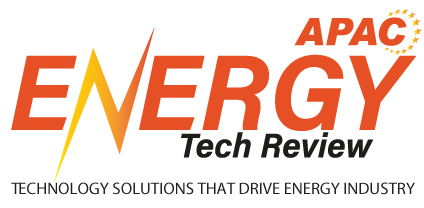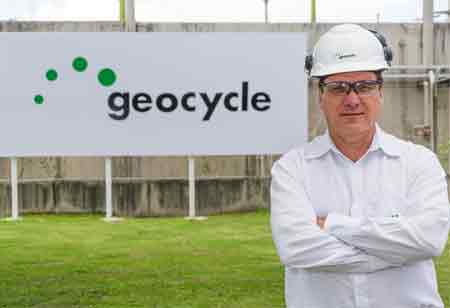Despite efforts to achieve greater coordination at a global level between countries, private companies, urban authorities, and international organizations to reduce global waste generation, it seems that deterioration of the environment caused by the more than 2,010 million tons of municipal solid waste that is generated annually (according to data from the World Bank 2018, It is expected that the annual generation of municipal solid waste will reach 3,400 million tons by 2050), with the vast majority being disposed of without any control, treatment or mitigation measures, is winning the battle.
There is no place on Earth that is free of waste, even in the most remote places in the world and practically in all oceans; plastic waste is found either as polluting garbage or in the form of microparticles that will take decades or even centuries to be absorbed by Earth, but not before generating a negative impact on ecosystems and human health.
Despite initiatives to reduce single-use packaging and encourage waste recycling practices, global waste generation continues to rise. According to the ISWA (International Solid Waste Association), only 14% of worldwide waste is recycled. The rest is inadequately managed, being disposed of, in the best of cases, in controlled landfills. However, a large volume is being disposed of in uncontrolled dumps, incinerated out in the open, or simply discarded without any control over rivers, forests, and oceans, causing the deterioration of human health and soil, water, and air, as well as increasing the generation of greenhouse gases that accelerate global warming.
"Today, it is clear that no one who inhabits this planet can be oblivious to their responsibility to reduce the generation of waste, contribute to the responsible and sustainable use of resources, and contribute to facilitating waste management"
On the other hand, while the world population continues to grow, the use of new sales technologies and the globalization of social networks, increase consumption practices, generating again an increase in industrial activity in order to satisfy consumption habits, which creates a challenge for humanity to use natural resources in balance with nature and to achieve the neutrality of CO2 emissions caused by human activity.
There are currently many industrial initiatives of circular economy in the cement industry that seek to reduce the volume of municipal solid waste that ends up in landfills, which, due to its characteristics, can´t be recycled. These initiatives promote rescuing from landfills, through the use of modern recovery plants, thousands of tons of waste, mainly plastic, with a percentage of biogenic content. This waste is transformed into a controlled, high-quality fuel (RDF) that is later used in cement kilns, with which the industry seeks to reduce its dependence on fossil fuels and contribute to global decarbonization and reduction of greenhouse gases, achieving, in some plants, the substitution of up to 90-100% of fossil fuels and also helping to reduce gas emissions generated in landfills.
This technology is called co-processing. Due to its nature and its advanced technology, it is an environmentally sustainable practice, recognized worldwide by several international organizations such as the United Nations, the Basel Convention, GIZ, and the WBCSD, among others, as it aims to use alternative fuels (RDF) replacing fossil fuels, without causing a major impact on the environment, achieving energy utilization and mineral integration of waste, without the generation of residual ash or waste, and helping reduce CO2 emissions in the cement industry. Since the combustion of RDF occurs at high temperatures (higher than in traditional incineration) and under strict process control, it also has long residence times within an alkaline environment typical of the cement industry, which neutralizes the acidity of the waste. Finally, the cement industry has modern gas filters and continuous emission monitoring systems, which makes co-processing a highly viable alternative for the treatment of large volumes of waste, not only for municipal solid waste but also for the disposal of large end-of-life tires and hazardous waste with combustible content that otherwise would have no other alternative but to be buried, leaving the responsibility to future generations.
In almost all cities in the world, there are nearby cement plants that can integrate co-processing for the treatment and recovery of large volumes of waste, integrating them into a Circular Economy practice. By reducing the use of fossil fuels, these plants collaborate in the global reduction of CO2 emissions, but they also contribute to reducing the need to convert new areas of fertile land into new waste dumps.
Co-processing in the cement industry also has the advantage that it can annually integrate not only thousands of tons of solid waste for alternative fuel production but also large volumes of mineral waste from the steel industry, power generation plants, and construction demolition waste (CDW), this to name just a few, and used it as alternative raw material helping decarbonize the cement industry and preserving the useful life of quarries, making cement production more ecological and sustainable, implementing more environmentally friendly construction practices for the benefit of urban development.
Today, it is clear that no one who inhabits this planet can be oblivious to their responsibility to reduce the generation of waste, contribute to the responsible and sustainable use of resources, and contribute to facilitating waste management; we urgently need the support of all stakeholders to create regulations and laws that allow adequate treatment of waste, but we also need investments in facilities and waste management; we need both public and private initiatives, to have alternatives committed to sustainable development, in balance with the environment urban growth and that are also proven and accepted by Society, we need to provide a definitive solution to the management and disposal of waste. The Earth we inhabit today urgently needs everyone's commitment to rationalize our consumption habits, preserve natural resources, and stop global warming caused by human activity, with the commitment to deliver to future generations a better world than the one we received and in better conditions than those we currently enjoy.
BIO
Oscar A. Enriquez is the head of the Project Management Office for Geocycle LATAM. He is also an expert in waste management for thermal energy valorization via co-processing, with more than 30 years of experience in the cement industry.












